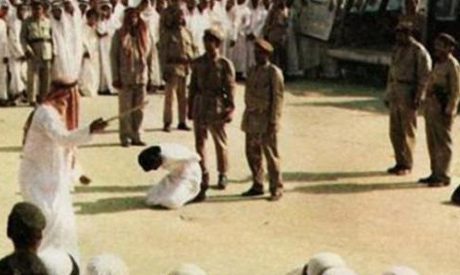What Happens to the Bodies of Executed Prisoners?
From secret cremations to organ harvesting, different countries have vastly different approaches to handling the bodies of executed prisoners—here’s what really happens after the sentence is carried out.
2/1/20254 min read


What Happens to the Bodies of Executed Prisoners?
The way a country treats its prisoners, even in death, speaks volumes about its justice system. While the debate on the death penalty continues, the reality is that executions are still happening across 55 countries today. But what happens after the execution? Where do the bodies go? And how do different nations handle the remains of those they put to death?
While many governments remain secretive about the process, we’ve gathered information on how some of the world's most well-known execution states—including Japan, Egypt, India, North Korea, Saudi Arabia, China, and the USA—deal with the bodies of executed prisoners.
Watch the Full Video Here
Japan: Secret Executions and Prison Ossuaries
Executions in Japan are carried out by hanging, often reserved for those convicted of multiple murders. Families and even the prisoners themselves are not informed of the execution until just hours before it happens. After the execution, prison staff remove the noose, wash the body, and dress the deceased according to religious customs, usually in a white garment.
A simple funeral service is performed in the prison mortuary, after which the body is cremated. If the family refuses to claim the remains—a common occurrence due to the social stigma associated with crime—the ashes are stored in a small prison ossuary.
Until recently, the Japanese government would only announce executions through a brief fax message stating that executions had taken place, without revealing names or details. Families now have 24 hours to collect the body before it is cremated.
Egypt: A Strict Timeline and No Ceremonies
In Egypt, the law states that an executed prisoner’s body can be claimed by family members, but only if the government approves the request. There are strict conditions:
The burial must take place without any ceremony.
If no family claims the body within 24 hours, it is sent to a morgue.
After seven days, unclaimed bodies are donated to universities for medical research.
Interestingly, while Islam generally forbids desecration of the dead, Egypt’s law permits medical use of executed prisoners’ bodies, raising ethical concerns.
India: Mandatory Autopsies and Restricted Funerals
In India, executions are carried out by hanging. The law mandates an autopsy to ensure the prisoner died from a broken neck, rather than strangulation, which would indicate an improperly conducted execution.
Family members can request the body for funeral rites, but only under strict conditions:
They must submit a written request.
They must promise not to hold a public demonstration.
If authorities fear public unrest, they can deny the request.
If unclaimed, the body is cremated or buried by the prison administration.
North Korea: No Bodies Returned
North Korea is notoriously secretive about executions. Reports from defectors indicate that executed prisoners’ bodies are rarely returned to families. In both public and secret executions, bodies are typically disposed of by security forces.
Accounts suggest that:
Some bodies are buried in unmarked mass graves.
Others are thrown into ravines.
Families are not informed of execution dates or burial locations.
Given the importance of ancestral burial rites in Korean culture, this policy serves as an additional punishment for the families of the executed.
Saudi Arabia: Beheadings and Disappearing Bodies
Saudi Arabia’s treatment of executed prisoners varies depending on the crime. Those executed for criminal offenses, such as murder, typically have their bodies returned to families for burial. However, political prisoners often disappear after execution.
Human rights organizations report that:
Families of political prisoners usually learn of executions from news reports, not the government.
At least 140 bodies of executed individuals are currently unreturned to families.
Some fear bodies may be dumped in deserts or destroyed to cover up evidence of torture.
Foreigners executed in Saudi Arabia often suffer a similar fate, with families denied access to their loved ones’ remains.
China: State-Controlled Cremations and Organ Harvesting
China executes thousands of prisoners annually, mostly by lethal injection. The government does not allow families to see the body, attend a funeral, or receive remains. Instead, executed prisoners are cremated by the state.
One major reason for this secrecy is illegal organ harvesting. Reports indicate that:
Organs from executed prisoners have been sold domestically and internationally.
In some cases, inmates are reportedly still alive when organs are harvested.
The practice continues despite China’s claims of reform.
China also faced controversy for displaying plastinated bodies in international exhibitions, with concerns that these corpses belonged to executed prisoners.
USA: A Patchwork of Policies and Unclaimed Bodies
The United States has no federal law governing the handling of executed prisoners’ bodies, leaving it to individual states.
In some states, families can claim the body, but they must pay for transport and burial.
In others, the state cremates unclaimed bodies or buries them in prison cemeteries.
Autopsies are sometimes required to confirm that the execution was conducted correctly.
A growing concern is the illegal body trade, with reports of prison officials secretly selling unclaimed bodies or body parts. Some states, such as Alabama, have been caught dissecting inmates’ bodies before returning them to families.
Mississippi recently uncovered 215 unmarked graves behind a state prison, where deceased prisoners were buried without their families’ knowledge.
Final Thoughts
What happens to an executed prisoner’s body varies drastically between countries. Some nations treat the dead with dignity, while others dispose of bodies in secrecy, hide executions from families, or even profit from organ harvesting.
The fate of these prisoners after death reflects the justice systems that sentenced them. Whether or not you support capital punishment, it’s worth questioning how humanely these governments are handling the remains of those they execute.
Need Guidance on End-of-Life Planning?
If you’re looking for support with end-of-life discussions, advance care directives, or funeral planning, we offer consultations to help navigate these important topics.



